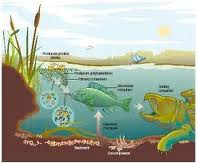Ecosystems and Biodiversity

Climate change is being accelerated by biodiversity loss and ecosystem degradation. Healthy ecosystems—for example, forests and bogs—contain massive carbon reservoirs and are vital to regulating the global climate. While climate change poses an immense challenge today, the continued degradation of these ecosystems threatens to greatly increase greenhouse gas emissions and intensify the negative effects of climate change in the future. The sustained supply of certain ecosystem services—such as stream flow regulation in drought prone areas—will be critical in buffering human populations from the adverse impacts of climate change, which include coastal flooding, droughts and other hazards. Healthy and diverse natural ecosystems are expected to be more resilient in the face of climate change than ones that have been degraded.
As part of its assistance to countries to develop green, low-emission and climate-resilient strategies (Green LECRDS), UNDP supports activities that are aimed at managing ecosystems to improve their climate change mitigation and adaptation potential. Of the projects in UNDP’s biodiversity portfolio, at least 78 have taken measures—direct and/or indirect—associated with climate change adaptation. These efforts are represented by the adoption of alternative fuel sources, the collection of native plant genotypes, and the inclusion of particularly vulnerable species and ecosystems in protected areas.

A key element of the UNDP biodiversity strategy is restoration and sustainable management of carbon pools in natural ecosystems. For example, GEF-funded projects in South East Asia and Europe have been working to reduce carbon emissions from peatlands: peatland degradation has the potential to emit greenhouse gases, which—according to different estimates—could have a global warming potential that is equivalent to 13-30% of the global emissions from fossil fuel combustion.
 The UN REDD Programme, a joint initiative of UNDP, UNEP and the FAO, is working with nine countries around the world (Tanzania, Zambia, the Democratic Republic of the Congo, Bolivia, Paraguay, Panama, Indonesia, Vietnam and Papua New Guinea) to strengthen the governance framework for forest management. This work is intended to reduce carbon emissions from deforestation and forest degradation, and to attract payments from developed countries for the avoided carbon emissions.
The UN REDD Programme, a joint initiative of UNDP, UNEP and the FAO, is working with nine countries around the world (Tanzania, Zambia, the Democratic Republic of the Congo, Bolivia, Paraguay, Panama, Indonesia, Vietnam and Papua New Guinea) to strengthen the governance framework for forest management. This work is intended to reduce carbon emissions from deforestation and forest degradation, and to attract payments from developed countries for the avoided carbon emissions.



No comments:
Post a Comment